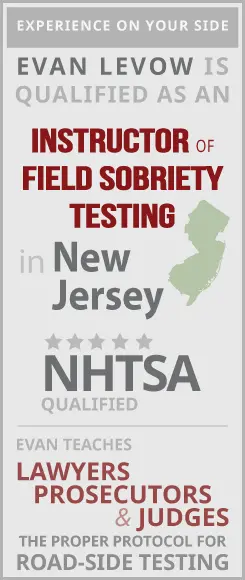In addition to fines, fees, surcharges, loss of driving privileges, and use of an ignition interlock device, people convicted of DWI in New Jersey are required to attend the Intoxicated Driving Program, a series of classes intended to educate and identify drivers at-risk of drug addiction and alcoholism.
How New Jersey’s Intoxicated Driving Program Works
The Intoxicated Driving Program (IDP) falls under the oversight of the Division of Addiction Services of the New Jersey Department of Human Services. It works in coordination with the county IDRCs and the Motor Vehicle Commission (MVC).
When you are formally notified of your license’s suspension, you will owe additional fees to the MVC and the IDRC of more than $200.
How Long Will It Take?
You may hear from the local county Intoxicated Driver Resource Center (IDRC) within 60 days of your conviction, or several months later, depending on the Center’s backlog of attendees.
First-time offenders are required to complete a 12-hour course through their local county Intoxicated Driver Resource Center (IDRC). Classes are usually held during daytime hours during the week. On a first offense, it is possible your driving privilege may be restored prior to completing the IDRC classes. However, if you fail to appear, your license may be revoked again.
Second offenders must attend a 48-hour session during detention, and the classes are usually held over a weekend at an overnight facility.
Third-time offenses mandate a 12 – 48-hour IDP detainment, in which you will be assessed and then referred for additional treatment.
For any level of offense, any driver who requires additional programming at the discretion of the IDRC can be ordered into a 16-week program of additional treatment.
What Is The Program Like?
You will be notified when and where to report for your IDRC session. You usually have to attend IDRC classes in the county where you were convicted. The class usually takes place in the town where the county court is located.
During the assigned time, you will complete an educational component, including active discussion periods. The course content includes information about alcoholism and drug addiction, its effects on personal and professional relationships, and legal issues.
During both the 12 and 48-hour courses, you will also meet with a counselor who will assess your situation and identify additional assistance you may need. Depending on the assessment, you may be referred for additional services like counseling, addiction treatment programs or support group attendance, to help you deal with the problems that led to your conviction.
Your participation in recommended services becomes part of your sentence, and your attendance may be monitored. You must follow the recommendations for any additional treatment and are responsible for the costs of additional treatment. Many drivers are ordered into an additional 16-week program, based on the assessment during the IDRC session.
What If I Live In Another State?
Even if you do not reside in New Jersey but have been convicted of traffic violations under the influence, you are still responsible for completing the IDRC course, participating in recommended treatment plans and paying the fees.
In some circumstances, arrangements can be made to complete your sentence requirements through your home state.
What If I Don’t Go?
If you choose not to appear for the IDRC session, do not complete the prescribed programs or do not pay the necessary fees, you will face additional penalties. The suspension time of your license is likely to be extended, and if the situation is not resolved you could face a 48-hour stint in jail for failure to comply.


